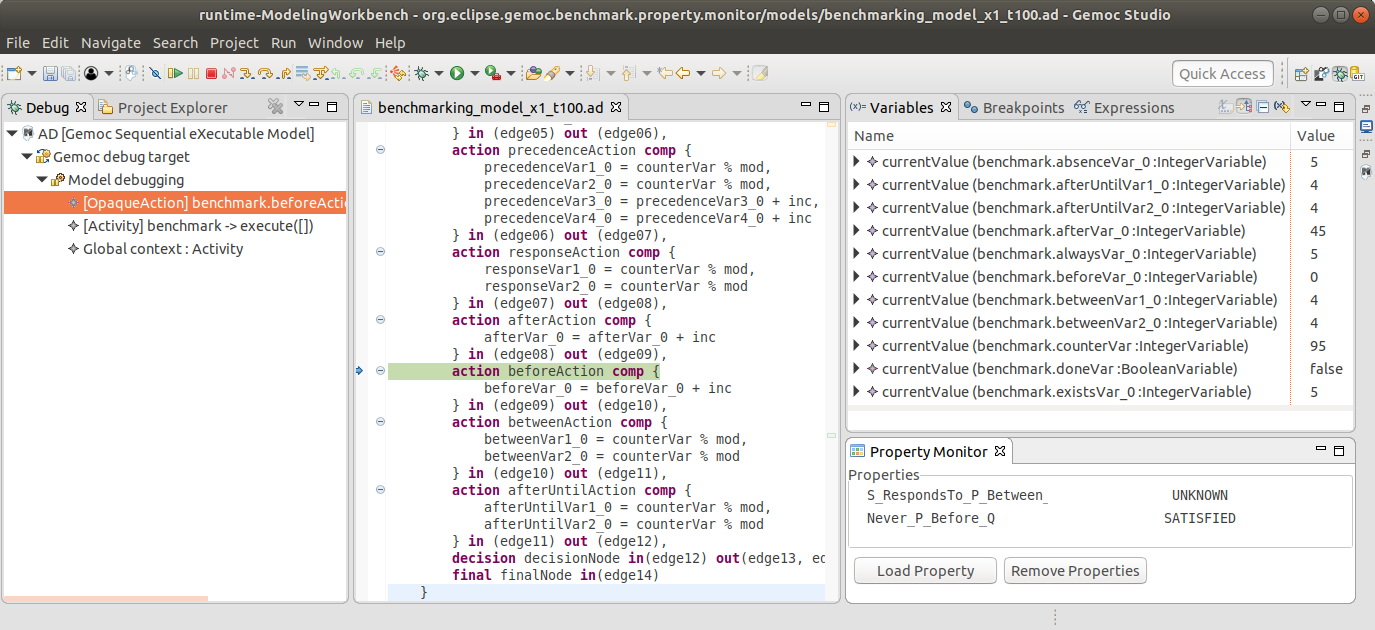Runtime Monitoring for Executable DSLs
Runtime monitoring is a fundamental technique used throughout the lifecycle of a system for many purposes, such as debugging, testing, or live analytics. While runtime monitoring for general purpose programming languages has seen a great amount of research, developing such complex facilities for any executable Domain Specific Language (DSL) remains a challenging, reoccurring and error prone task. A generic solution must both support a wide range of executable DSLs and induce as little execution time overhead as possible. Our contribution is a fully generic approach based on a temporal property language with a semantics tailored for runtime verification. Properties can be compiled to efficient runtime monitors that can be attached to any kind of executable discrete event model. Efficiency is bolstered using a novel combination of structural model queries and complex event processing. Our evaluation on 3 executable DSLs shows that the approach is applicable with an execution time overhead of 121% (on executions shorter than 1s), to 56% (on executions shorter than 20s) making it suitable for model testing and debugging.
Dorian Leroy, Pierre Jeanjean, Erwan Bousse, Manuel Wimmer, Benoit Combemale.
Research Paper Submission to the 16th European Conference on Modelling Foundations and Applications (ECMFA 2020)
Resources
Tool support presentation
As explained in the paper, we implemented our approach as a tool provided inside the GEMOC Studio, an Eclipse-based language and modeling workbench to design executable DSLs and execute conforming models. Here is a screenshot of the GEMOC Studio when debugging and monitoring properties on an Activity Diagram model taken from the evaluation materials:

Running the evaluation
Preparing the GEMOC Studio
- Download the latest version of the GEMOC Studio
- Install VIATRA on top of the GEMOC Studio
- Start the GEMOC Studio in a new workspace
Getting the benchmark code
- Download and extract the zip containing the code and evaluation materials
- Import the projects contained in the
plugins,eval/languagesandeval/modelsfolders into the current workspace of the GEMOC Studio
Running the benchmark
- Run the
ActivityDiagramMonitoringTimeBenchmarkingTest,ThingMLMonitoringTimeBenchmarkingTestandMiniJavaMonitoringTimeBenchmarkingTestfrom theorg.eclipse.gemoc.executionframework.property.testsproject as a JUnit Plugin Test